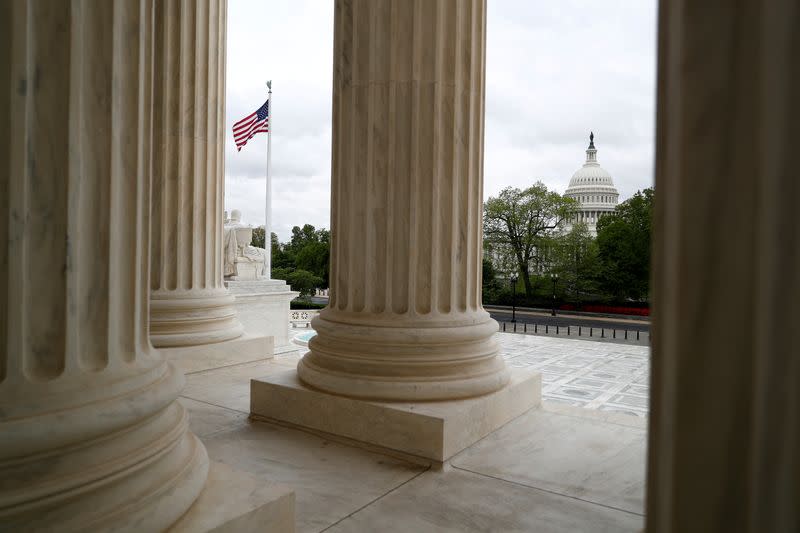U.S. top court tosses ruling against illegal immigration encouragement law

By Andrew Chung
(Reuters) - The U.S. Supreme Court on Thursday threw out a lower court ruling that had invalidated a decades-old federal law defended by President Donald Trump's administration that makes it a felony to encourage illegal immigration.
The high court, ruling 9-0, did not resolve the legal merits of the dispute but faulted the 2018 decision by the San Francisco-based 9th U.S. Circuit Court of Appeals as an overreach. The justices found that the 9th Circuit had based its decision on an issue never presented in the California case - the question of whether the law at issue was overly broad.
The Supreme Court, in its tersely worded ruling written by liberal Justice Ruth Bader Ginsburg, sent the case back to the 9th Circuit to start its work again. Ginsburg wrote that the lower court's "radical transformation of this case goes well beyond the pale."
The 9th Circuit struck down the law as a violation of the U.S. Constitution's First Amendment guarantee of free speech because it is overly broad, criminalizing a wide array of ordinary conversations and advice. The 9th Circuit found that the law could criminalize even simple speech, such as a grandmother suggesting to her relative whose visa had expired to stay in the country.
The Trump administration, in its appeal of the 9th Circuit ruling, argued that the law was not meant to criminalize protected speech, but rather to stop people who would facilitate or solicit illegal immigration and enrich themselves by doing so.
The case centered on the prosecution of a U.S. citizen named Evelyn Sineneng-Smith, who ran an immigration consultancy in San Jose, California that primarily served Filipinos who worked as home healthcare providers.
But neither side in the case had presented arguments over whether the law was overly broad, Ginsburg said. Instead, the appeals court itself introduced that issue.
"No extraordinary circumstances justified the panel's takeover of the appeal," Ginsburg said.
Federal prosecutors in 2010 accused Sineneng-Smith of duping illegal migrants into paying her to file frivolous visa applications while remaining in the country indefinitely.
Sineneng-Smith was convicted in 2013 of violating the encouragement law, as well as mail fraud. She was sentenced to 18 months in prison and three years of supervised release.
Trump has made restricting both legal and illegal immigration a centerpiece of his presidency and his campaign for re-election on Nov. 3.
(Reporting by Andrew Chung in New York; Editing by Will Dunham)

